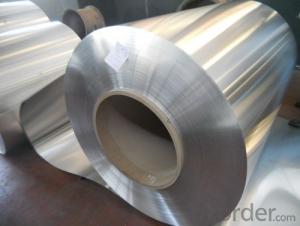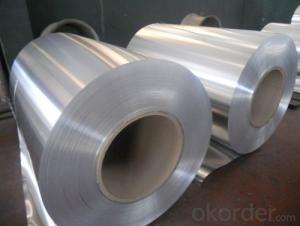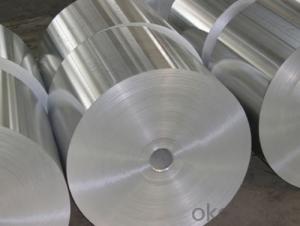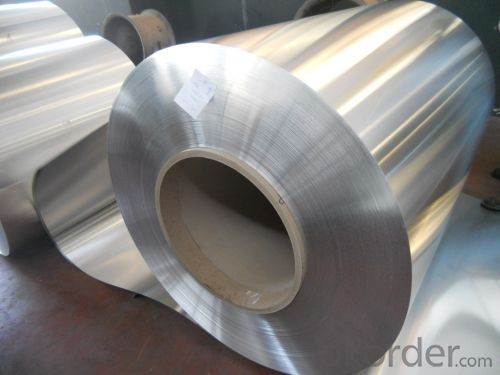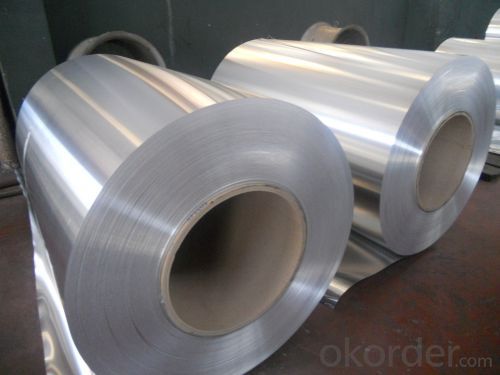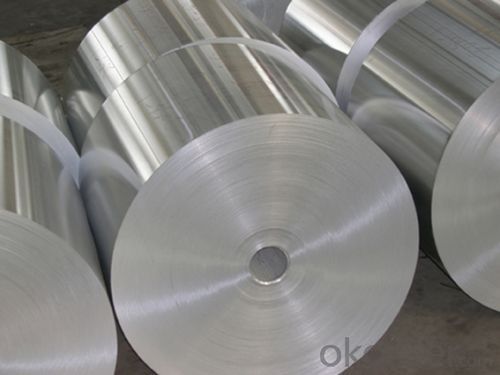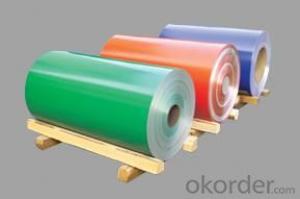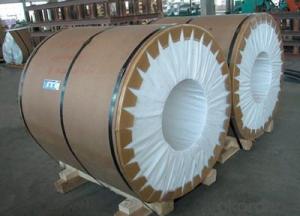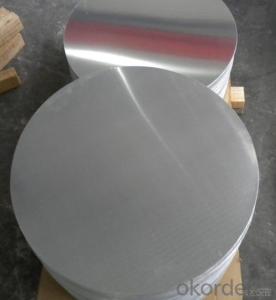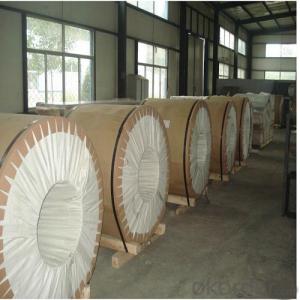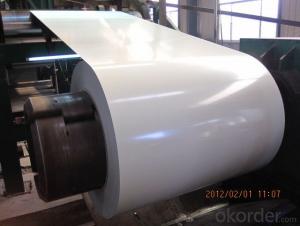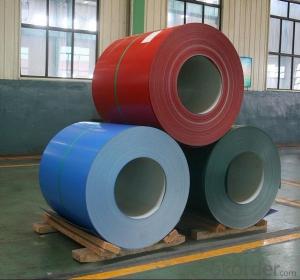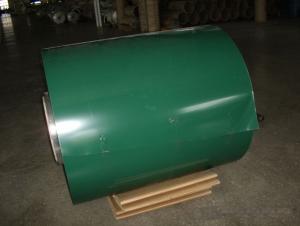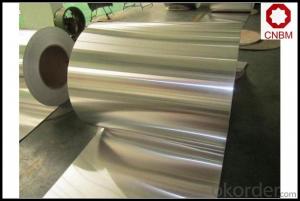High Quality Coil Coating Aluminum Coil for Ceiling - Building Material at Good Price
- Loading Port:
- Shanghai
- Payment Terms:
- TT OR LC
- Min Order Qty:
- 10 m.t.
- Supply Capability:
- 30000 m.t./month
OKorder Service Pledge
OKorder Financial Service
You Might Also Like
Packaging & Delivery
Packaging Details: | Standard export packing or following customer's demand |
Delivery Detail: | Within 10-20days or according to the order quantity |
High Quality and Factory Price Aluminum Coil
Specifications
Grade
| 1000 Series: 1050 1060 1070 1100 1200 1235 etc. 3000 Series: 3003 3004 3005 3104 3105 3A21 etc. 5000 Series: 5005 5052 5083 5086 5154 5182 5251 5754 etc. 6000 Series: 6061 6063 6082 6A02 etc. 8000 Series: 8006 8011 8079 etc. |
Thickness | 0.05~10mm |
Width | <1600mm< span=""> |
Color | Metallic, Solid, RAL or by customer requirements |
Coating paint: | PVDF(Polyvinylidene Fluoride), PE(Polyester ) |
Coating thickness | as per customer’s request |
Gloss | 10-90%(EN ISO-2813:1994) |
Total coating thick | Polyester18~27micron(EN ISO-2360:1995) PVDF27 ~35micron(EN ISO-2360:1995) |
Coating hardness | 2H |
Protective film | PVC film, Colorless transparent or White-black |
Adhesion | 5B (EN ISO-2409:1994) |
Impact resistance | No cracking and peeling (A.S.T.M D2794-1993) |
Flexibility (T-bend) | 0T- 2T |
Temper | H16, H18, H24, H26, H26 |
Certification | ISO9001:2000, CE, SGS |
Coil's standard diameter | 1100mm |
Inner Diameter | 405mm/505mm |
Coil's standard weight | 2000kgs |
Payment | L/C ,T/T |
Parameter
Product | Alloy | Temper | Thickness | Width | I.D(mm) | Application |
Aluminum Coil/Strip | 1050,1060,1070, 1100,1200,1235, 1145,3003,304, 3105,3A21, 8011 | O H12 H14 H16 H18 H22 H24 H26 | 0.2-8mm | 50-2400mm | 75,150 200,300 400,505 (as customers's request) | construction,decoration, automobile,electronic, machinery,boat construction, aeronatics&astronautics, cookware,packing etc. |
FAQ
1. How can I get some samples?
We are honored to offer you samples. New clients are expected to pay for the courier cost. The samples are free for you.
2 Do you have any certificates?
Our products passed inspection of SGS, FDA, and CE Quality is priority! Every worker keeps the QC from the very beginning to the very end, Quality control department especially responsible for quality checking in each process.
3 Can your factory print or emboss my logo on the goods?
Yes, we can print or emboss the logo on the goods or their packing box.
4 What information should I let you know if I want to get a quotation?
1) The specification of products (length x width x thickness);
2) The temper and alloy.
3) The final product you will use to be made
4 It will be better if you can show us the pictures or design sketch. Samples will be best for clarifying. If not, we will recommend relevant products with details for reference.We usually produce goods based on customers
Samples or based on customers’ picture, logo, sizes etc.
Our Services
1. Reasonable production arrangement to make delivery very fast;
2. We are able to provide leading tolerances, metallurgical assistance, quick and reliable delivery, samples for new products, etc.
3. We have the strong capability to meet your particular requirement for the products.
4.To guarantee the quality of the products we can meet most of the standards all over the world.
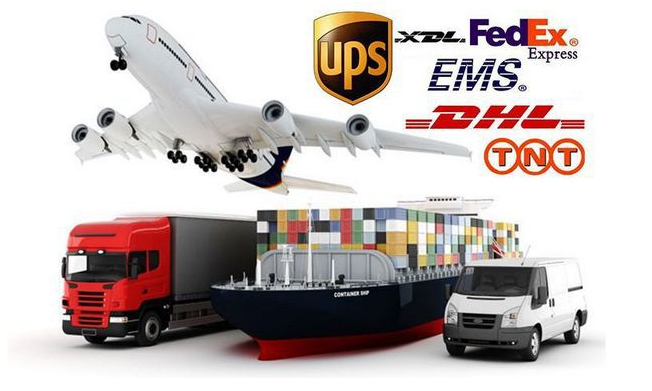
Photos
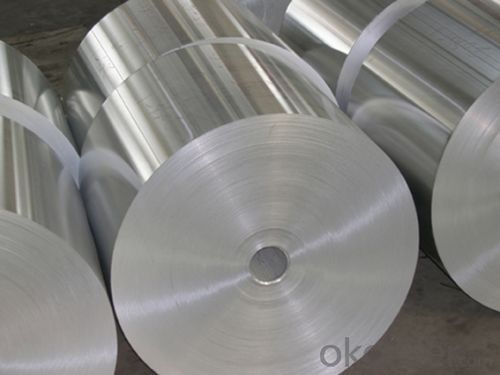
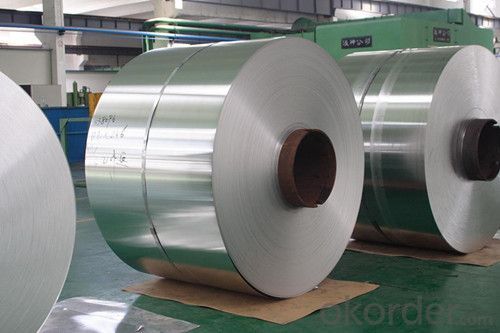
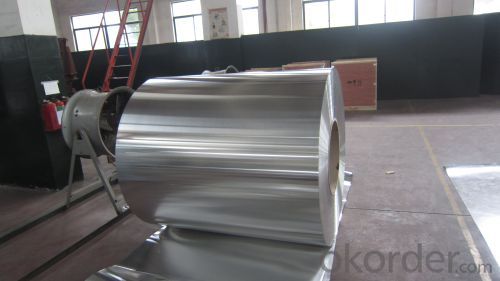
- Q: What causes tower after cutting aluminum coil
- Insulation aluminum coil will appear when the cooling bending phenomenon, reason is generally under the conditions of air cooling, the heat transfer coefficient of the aluminum coil insulation parts in contact with the air were flat, but because the wall thickness or different shapes, different parts of the heat dissipation rate is not balanced, resulting in thick wall or hollow tube heat faster than the thin Department of slow, resulting in insulating aluminum roll cooling occurs to the hollow part.
- Q: Is it safe or practical to use an electric iron as a heat source for an aluminum coil?
- <p>Using an electric iron to heat an aluminum coil is not advisable. Electric irons are designed to heat their own plates for ironing clothes, not to transfer heat to other materials like aluminum coils. The high temperature of an iron could damage the coil and potentially cause a fire hazard. Moreover, aluminum has a high thermal conductivity, which means it would dissipate heat quickly, making it inefficient to use an iron for this purpose. Always use heating elements specifically designed for the material you intend to heat.</p>
- Q: What is the minimum thickness available for aluminum coils?
- The minimum thickness available for aluminum coils can vary depending on the specific requirements of the application. However, in general, aluminum coils can be manufactured with a minimum thickness of around 0.006 inches or 0.15 millimeters. It is important to note that certain industries or uses may have different minimum thickness requirements, so it is always advisable to consult with a manufacturer or supplier to determine the appropriate thickness for a specific application.
- Q: How are aluminum coils used in heating, ventilation, and air conditioning (HVAC) systems?
- Aluminum coils hold a vital role in HVAC systems, specifically in heating, ventilation, and air conditioning. These coils are implemented in both the condenser and evaporator parts of the system. In the condenser, the aluminum coils aid in the transfer of heat from the refrigerant to the surrounding air. The refrigerant, which is in a state of high pressure and temperature after compression, flows through the condenser coils. As the air from the surroundings passes over these coils, the heat from the refrigerant moves to the air. This procedure contributes to the cooling of the refrigerant, transforming it from a gas into a liquid state. The cooled liquid refrigerant then moves to the evaporator coil. In the evaporator, the aluminum coils help in the absorption of heat from the indoor air. The liquid refrigerant enters the evaporator coils, where it experiences a change in phase from liquid to gas. As the warm indoor air passes over the coils, the refrigerant absorbs the heat, resulting in the cooling of the air. This cooled air is subsequently circulated back into the room, creating a comfortable indoor environment. The preference for aluminum coils in HVAC systems stems from their outstanding thermal conductivity, resistance to corrosion, and lightweight properties. These characteristics ensure effective heat transfer and enhance the overall performance of the system. Moreover, aluminum coils are more cost-efficient and environmentally friendly compared to materials like copper. Regular maintenance and cleaning of the aluminum coils are imperative to maintain their optimal functioning. Over time, dirt, dust, and debris can accumulate on the surface of the coils, hindering heat transfer and reducing efficiency. Thus, periodic cleaning is essential to preserve the performance of the HVAC system and prolong the lifespan of the aluminum coils.
- Q: Are aluminum coils resistant to chemicals?
- Generally, chemicals do not pose a problem for aluminum coils due to their inherent resistance. This is because aluminum naturally develops a protective oxide layer on its surface, which shields it from various chemicals. Consequently, the oxide layer effectively prevents corrosion and deterioration of the aluminum coils when they come into contact with different substances. Nevertheless, it is worth mentioning that certain chemicals, particularly potent acids or alkalis, can still harm aluminum. In such instances, applying additional protective coatings or treatments becomes essential to strengthen the chemical resistance of the aluminum coils.
- Q: What are the different grades of aluminum used in coils?
- There are several different grades of aluminum used in coils, each with its own specific properties and applications. The most commonly used grades include: 1. 1000 series: This grade of aluminum is commercially pure and has excellent corrosion resistance. It is often used in applications where high corrosion resistance is required, such as in chemical processing equipment or marine components. 2. 3000 series: These alloys are known for their moderate strength and excellent formability. They are often used in cooking utensils, heat exchangers, and general sheet metal fabrication. 3. 5000 series: This grade of aluminum is known for its excellent weldability and corrosion resistance. It is commonly used in marine environments, as well as in transportation and structural components. 4. 6000 series: These alloys are known for their combination of strength, formability, and corrosion resistance. They are widely used in architectural applications, such as window frames, doors, and curtain walls. 5. 7000 series: This grade of aluminum is known for its high strength and toughness. It is often used in aerospace applications, as well as in sporting goods and automotive parts where strength is critical. These are just a few examples of the different grades of aluminum used in coils. The choice of the grade depends on the specific requirements of the application, such as strength, corrosion resistance, formability, and weldability.
- Q: Can aluminum coils be used in the production of aluminum doors?
- Yes, aluminum coils can be used in the production of aluminum doors. Aluminum coils are typically used as a raw material in the manufacturing process of aluminum doors. These coils are made from high-quality aluminum alloy and are available in various thicknesses and widths. They can be easily formed into different shapes and sizes to meet the specific requirements of the doors. Additionally, aluminum coils are lightweight, durable, and resistant to corrosion, making them an ideal choice for door production. The coils are often processed through various techniques such as cutting, bending, and welding to create the desired door components. Overall, aluminum coils offer many advantages in terms of versatility, strength, and aesthetics, making them a popular choice for aluminum door manufacturers.
- Q: Can aluminum coils be used in automotive applications?
- Automotive applications can indeed utilize aluminum coils. Given their lightweight nature, aluminum coils prove to be an exceptional option for automotive manufacturers, aiding in the reduction of overall vehicle weight. Consequently, this reduction can lead to enhanced fuel efficiency and performance. In addition, the outstanding heat conductivity of aluminum coils becomes indispensable in automotive applications, particularly when it comes to heat dissipation. Furthermore, the commendable corrosion resistance of aluminum coils proves to be highly advantageous in automotive applications, specifically when vehicles are exposed to diverse weather conditions and road salts. All in all, the utilization of aluminum coils in automotive applications offers numerous benefits, including weight reduction, improved fuel efficiency, superior heat dissipation, and enhanced corrosion resistance.
- Q: How do aluminum coils perform in extreme weather conditions?
- Aluminum coils perform well in extreme weather conditions due to their excellent resistance to corrosion and ability to withstand high temperatures. They can effectively dissipate heat and maintain their structural integrity, making them a reliable choice for various applications in extreme climates.
- Q: Which would you guys recommend to a 13 year-old? I used a wooden bat at my last game, and I got a double to the left field wall, I don't think i've done that good with an aluminum bat all year. Should I continue using the wooden one? What do you guys think?
- Wooden bats are cooler anyways. Sure, anybody can use an Aluminum bat, but how many kids your age are using Wooden bats? Besides, Aluminum bats are more dangerous.
Send your message to us
High Quality Coil Coating Aluminum Coil for Ceiling - Building Material at Good Price
- Loading Port:
- Shanghai
- Payment Terms:
- TT OR LC
- Min Order Qty:
- 10 m.t.
- Supply Capability:
- 30000 m.t./month
OKorder Service Pledge
OKorder Financial Service
Similar products
Hot products
Hot Searches
Related keywords
